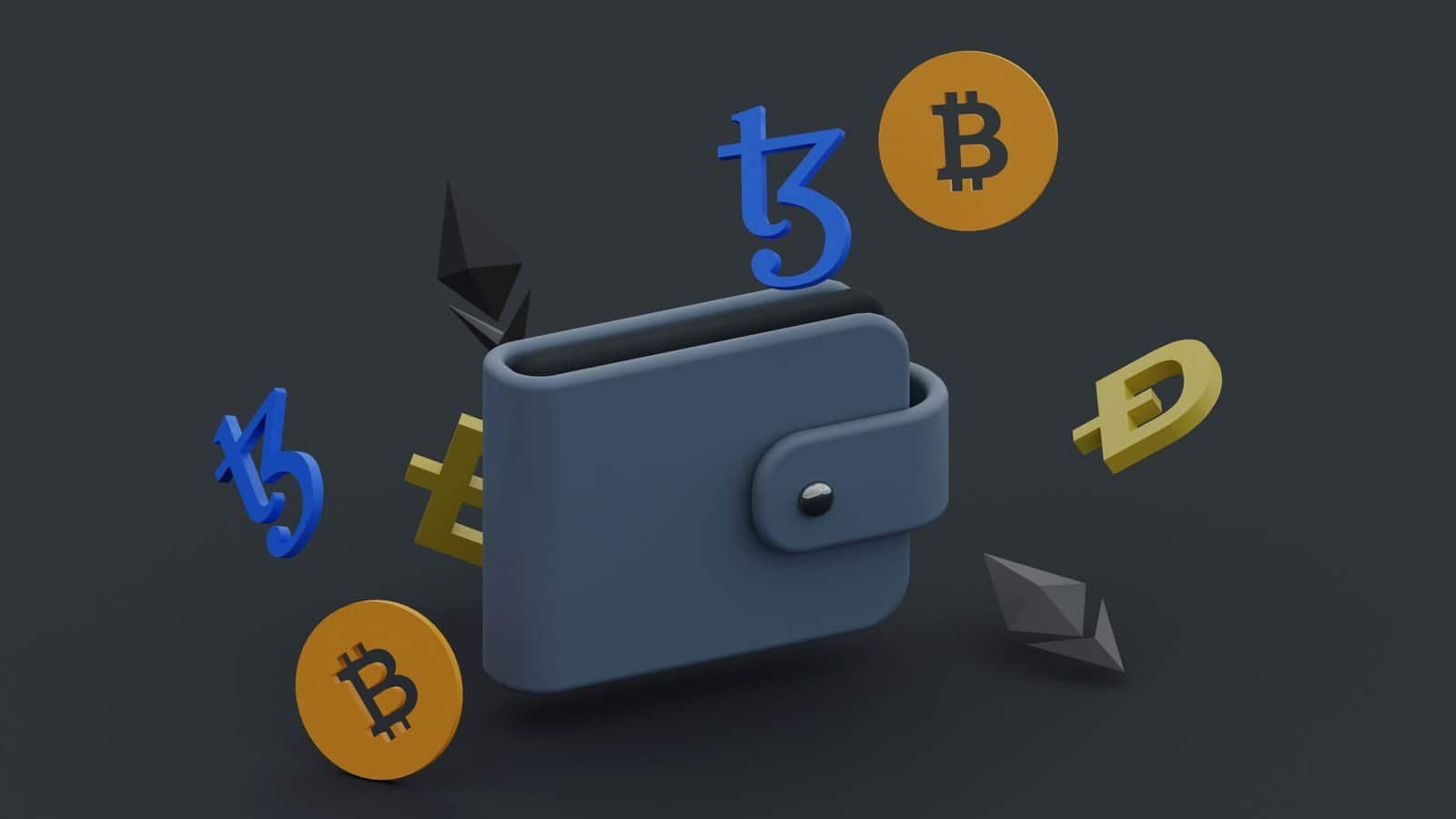Which crypto exchange would you trust most when something goes wrong with your account or funds?
What Crypto Exchanges Have The Best Customer Support?
You want an exchange that answers quickly, fixes problems clearly, and treats your security and funds as a priority. This article breaks down which exchanges are widely regarded for strong customer support, what criteria you should use to evaluate support, how to interact with agents effectively, and what steps to take if support doesn’t help.
Why customer support matters for crypto exchanges
You’re interacting with platforms that hold your identity, funds, and transaction history. When verification stalls, a withdrawal is delayed, or you suspect unauthorized access, the quality of support determines how fast you regain control. Good support can prevent losses, speed resolution, and offer peace of mind.
Key criteria to evaluate exchange customer support
You should evaluate support across several objective and subjective measures. Each criterion affects how quickly and successfully your issue will be resolved.
Response channels
You want to know whether the exchange offers live chat, phone support, email, or ticket systems. Multiple channels increase your chances of a timely resolution and let you choose the best channel for the problem.
Response time
Fast initial response matters, but resolution time is more important. An immediate chat reply that doesn’t resolve the problem isn’t as helpful as a slightly slower but conclusive solution.
24/7 availability
Some issues (like security incidents or withdrawal problems) can’t wait. You’ll prefer exchanges that offer round-the-clock support, especially if you trade across time zones.
Support quality and expertise
You want staff who understand KYC, blockchain confirmations, smart contract nuances, and compliance. Specialist teams for security incidents and account recovery are a big plus.
Multilingual support
If English isn’t your first language, multilingual support improves clarity and reduces misunderstandings.
Help center and documentation
A robust knowledge base with step-by-step guides can resolve many problems without contacting support. Quality documentation shows an exchange invests in user success.
Escalation and resolution procedures
You should have an idea of how escalations work, whether there’s a dedicated dispute team, and how long each escalation stage typically takes.
Transparency and communication
You want timely updates and honest timelines rather than silence. Exchanges that post status pages and incident reports reduce uncertainty.
Community and social channels
Official Twitter/X, Telegram, or Reddit channels can be useful for status updates. Be careful to use only official channels to avoid scams.
Table: Comparing customer support features of major exchanges
Below is a comparative snapshot of common exchanges on support features. This is a generalization based on industry reports, user reviews, and publicly stated features. Your local experience may vary.
| Exchange | Live Chat | Phone Support | Email/Ticket | 24/7 Support | Multi-language | Knowledge Base Quality | Typical Response Time* | Notes |
|---|---|---|---|---|---|---|---|---|
| Coinbase | Yes | Limited phone callbacks | Yes | Mostly yes | Yes | Excellent | Minutes to hours | Very user-focused; good verification help |
| Binance | Yes (chat) | No public phone | Yes | 24/7 | Yes | Good | Minutes to hours | Large volume; quality varies by region |
| Kraken | Yes | Phone for certain issues | Yes | Mostly yes | Yes | Very good | Minutes to hours | Strong security focus |
| Gemini | Yes | Phone callbacks | Yes | Business hours + limited 24/7 | Yes | Good | Hours | Regulated US focus; good customer care |
| Crypto.com | Yes | Phone for premium users | Yes | 24/7 | Yes | Improving | Minutes to hours | Rapid growth led to mixed reviews historically |
| Bitstamp | Yes | Phone support | Yes | Mostly hours | Yes | Good | Hours | Long-standing European exchange |
| Bybit | Yes | Live chat 24/7 | No phone | 24/7 | Yes | Good | Minutes | Fast chat support; mixed account recovery reviews |
| KuCoin | Yes | Chat 24/7 | Yes | 24/7 | Yes | Good | Minutes | Good for altcoins; KYC issues reported |
| Bittrex | No chat | No phone | Yes | Limited | English | Fair | Hours to days | US-focused; moderate reviews |
| Bitfinex | Yes | Limited phone | Yes | Mostly | Yes | Fair | Hours | Advanced trading; mixed support feedback |
*Typical response time is approximate and varies by region, ticket complexity, and current incident load.

The exchanges that consistently score highly for customer support
Below are exchanges that typically stand out for better-than-average customer support, with notes on what makes them reliable for many users.
Coinbase — Best for beginners and straightforward support
Coinbase places strong emphasis on user experience, with an accessible help center and a formal process for identity verification issues. You’ll get clear guidance for account recovery and a coordinated approach to disputes. Phone callback options (available in some regions) and an intuitive UI reduce the frequency of support tickets.
Pros:
- Strong documentation and step-by-step guides
- Active account recovery processes
- US regulatory alignment which encourages clearer procedures
Cons:
- Higher fees; some users report slower response during high demand
Kraken — Best for security-focused users
Kraken’s reputation for security extends to its support. You can expect detailed responses from staff who understand account security and blockchain confirmations. Kraken’s historical focus on institutional and advanced traders means support often covers complex issues.
Pros:
- Deep support knowledge for security incidents
- Detailed ticketing and escalation procedures
- Solid reputation for resolving technical issues
Cons:
- Interface can be less beginner-friendly; some responses are technical
Gemini — Best for regulated market users
Gemini offers strong regulatory compliance and customer support that reflects that environment. If you want an exchange operating under clear regulatory frameworks with reliable communication, Gemini is a solid choice.
Pros:
- Regulated in the US; strong compliance processes
- Clear escalation paths and consumer protections
Cons:
- Support speed can vary; not all regions get 24/7 phone options
Bitstamp — Best for consistent, personal support
As one of the oldest exchanges, Bitstamp provides a relatively personal approach to support with phone options and a focused knowledge base. You’ll get consistent responses and a more hands-on approach to disputes.
Pros:
- Trusted history and consistent procedures
- Phone support for certain issues
Cons:
- Smaller team compared to giants like Binance or Coinbase
Binance — Best for global reach and quick chat responses (with caveats)
Binance offers 24/7 chat support and a huge knowledge base. You’ll get very quick initial replies, especially for routine questions. However, the sheer scale means complex issues or fraud cases can require longer escalation and inconsistent agent experience in some regions.
Pros:
- 24/7 live chat, many language options
- Comprehensive help center and community resources
Cons:
- Quality varies across regions; security incident handling can be slow due to volume
Exchanges with mixed or cautionary support records
You should be cautious or aware of known issues for these exchanges. They can still be useful, but be prepared with extra documentation and patience.
Crypto.com — Improving support, mixed past reviews
Crypto.com experienced support strain during rapid growth. While support has improved and premium users get better options, you may still encounter delays during peak incidents.
KuCoin and Bybit — Quick chat but mixed KYC/ recovery outcomes
These exchanges offer 24/7 chat and are strong for altcoins and derivatives trading. You’ll typically get fast initial responses, but resolution of complex account recovery or regulatory issues can be slower.
Smaller or regional exchanges
Smaller exchanges may offer personal support but lack the resources for fast resolution of complex incidents. If you choose them, keep deposits minimal until you’ve tested their support responsiveness.

How to test an exchange’s support before depositing large amounts
You should verify support responsiveness before entrusting an exchange with substantial funds. A few practical tests:
- Open the help center and search a common issue; note clarity and completeness.
- Initiate a live chat about a hypothetical query (e.g., deposit crediting time). Time your response and judge the agent’s helpfulness.
- Create a support ticket about account features and see how long the first substantive reply takes.
- Check social channels for recent incidents and the exchange’s communication cadence.
If support consistently responds quickly and clearly across these tests, you’ll be more confident in leaving larger amounts.
How to craft effective support requests (templates you can use)
You’ll get faster and better results when you submit clear, complete support requests. Below are templates for common issues. Replace bracketed items with your details.
Account locked or login issues
Subject: Unable to access account — login locked (email: [your-email@example.com])
Message: Hello, my account appears locked and I cannot log in. I attempted to sign in with my registered email [your-email@example.com] from IP [your-IP-if-known] and received an error: [exact error message]. I have attached a photo of my government ID and a selfie for verification. Please advise the next steps to restore access and confirm any required timelines. Thank you.
Withdrawal stuck / funds not received
Subject: Withdrawal not confirmed — txid: [transaction-id] / withdrawal ID: [withdrawal-id]
Message: Hello, I initiated a withdrawal of [amount and asset] to address [address] on [date/time]. Withdrawal ID is [withdrawal-id] and blockchain TXID is [transaction-id] (if available). Status shows [status on exchange], but the destination wallet does not show funds. Please investigate and advise whether additional confirmations are required, or if you can re-broadcast the transaction. Thank you.
KYC verification rejected or pending
Subject: KYC verification issue — account [your-email@example.com]
Message: Hello, my document verification was rejected with reason [rejection reason on platform]. I uploaded [document name] and used these settings [camera type, browser]. I have attached new images with higher resolution and a selfie. Please confirm what specific elements caused rejection and whether manual review is available. Thank you.
Suspected unauthorized activity
Subject: Urgent — suspected unauthorized access on account [your-email@example.com]
Message: Hello, I noticed unauthorized activity on my account: [describe activity: withdrawals, trades, 2FA changes] at approximate time [date/time]. I have changed my password and disabled linked devices. Please freeze outgoing withdrawals, start an urgent security review, and confirm the next steps to secure my account and recover any missing funds. Contact me at [secure-phone-or-email]. This is time-sensitive.

How to escalate if support is unresponsive
If initial support doesn’t solve your problem, follow this escalation path:
- Use the official escalation mechanism in the ticketing system — markurgency if available.
- Request a supervisor or escalation to a dedicated team (security, KYC, or disputes).
- Reach out through verified social channels for public status updates (do not post sensitive info).
- If you’re in a regulated jurisdiction, file a complaint with the exchange’s regulator (e.g., CFPB, FCA, FINMA) or with a consumer protection agency.
- If theft occurred, file a police report and share the report with the exchange as they often require it for investigations.
Keep a record of all interactions, timestamps, ticket numbers, and copies of evidence. This documentation is essential when escalating to regulators or law enforcement.
Security incidents: What to expect from support
In the event of a hack or phishing incident, you should expect certain behaviors from a reputable exchange:
- Immediate acknowledgement of the incident
- Temporary holds on outgoing transactions if the breach targets a subset of accounts
- Communication about actions being taken and expected timelines
- Advice on password/2FA reset and suspicious activity review
- Coordination with law enforcement for significant breaches
If an exchange fails to communicate transparently during a security incident, treat their support as unreliable and consider withdrawing non-essential funds.

How to protect yourself so you minimize reliance on support
You’ll have fewer emergencies if you proactively secure your account:
- Use strong, unique passwords and a password manager
- Enable hardware 2FA (e.g., YubiKey) where available
- Keep withdrawal allowlists enabled and use address whitelisting
- Use separate email for crypto accounts and secure that email with 2FA
- Test small deposits and withdrawals before moving large sums
- Keep KYC documents up to date to avoid sudden verification issues
These practices reduce the number of support interactions and speed the resolution when issues arise.
What to watch out for in support communications (scams)
Scammers impersonate exchange support. You should never provide private keys, passwords, or 2FA codes to anyone claiming to be support. Official support will never ask you to move funds to a “safe” wallet they provide. Verify the email domain and use the exchange’s internal ticketing system rather than replying to random emails.
Real-world examples of support success and failure
You should understand both sides. Many users report smooth, rapid recoveries when exchanges proactively freeze suspicious withdrawals. Conversely, others recount clogged ticket queues during major outages or hacks, causing long waits and delays in recovering funds. Your best protection is choosing exchanges known for transparent incident response and maintaining good account hygiene.
Regulatory environment and its effect on support
Exchanges regulated in major jurisdictions often have stricter requirements for KYC and clearer complaint mechanisms. You’ll typically find better-defined processes for dispute resolution, but also stricter documentation requests. If regulatory recourse matters to you, prefer exchanges with clear licensing and regional oversight.
How exchange size and business model affect support quality
Larger exchanges handle huge ticket volumes and invest in automation and chatbots. That leads to quick initial replies but sometimes inconsistent deeper support. Smaller exchanges may offer more personalized support but lack resources for 24/7 staffing or sophisticated security teams. Consider what matters more for your needs: consistency and scale or personalized attention.
Table: Recommended exchange pick by user type
| User Type | Recommended Exchange(s) | Why |
|---|---|---|
| Beginner / casual investor | Coinbase, Gemini | Very user-friendly interfaces and clear support channels |
| Security-conscious | Kraken, Bitstamp | Strong security culture and careful support processes |
| Active global trader | Binance, KuCoin | 24/7 chat, many languages, fast initial responses |
| US-regulated focus | Gemini, Coinbase, Kraken | Clear compliance and consumer protection frameworks |
| High-volume / VIP | Binance (VIP), Crypto.com (premium) | Dedicated VIP support and phone escalation options |
Typical timelines for common issues
You should set expectations for how long different issues often take:
- Simple account questions or FAQs: Minutes to hours
- KYC verification (standard): Hours to several days
- KYC manual review or appeals: 2–14 days
- Withdrawal pending due to blockchain confirmations: Minutes to hours depending on network
- Withdrawal stuck due to compliance hold or mistake: Days to weeks, depending on complexity
- Security incident or fraud investigation: Weeks to months for full resolution
Plan your activities accordingly and don’t assume instant fixes for complicated problems.
Practical tips when interacting with support
You’ll get better outcomes if you:
- Be concise and factual: list dates, IDs, and exact error messages.
- Attach screenshots or transaction hashes when applicable.
- Avoid sending sensitive credentials.
- Follow the exchange’s requested format to avoid delays.
- Stay polite; hostile communication can slow cooperation.
- Save ticket numbers, agent names, and timestamps.
These habits save time for both you and the support agents.
When to withdraw funds and switch exchanges
If support repeatedly fails you, or the exchange shows poor transparency during incidents, consider reducing your exposure. Move assets to a wallet you control, or switch to an exchange with better support and stronger security reputation. Before moving, check withdrawal fees, withdrawal minimums, and on-chain confirmation delays.
Using insurance, custody, and third-party services
You can reduce reliance on exchange support by using:
- Self-custody wallets for long-term holdings
- Third-party custodians for institutional-level protection
- Insurance offered by some exchanges or third-party providers
These options shift some responsibilities away from exchange support but introduce new processes for recovery and proof if something goes wrong.
Final recommendations: Choosing the exchange for your needs
You should select an exchange based on a balance of support quality, security posture, regulatory compliance, and user experience. If you value fast and clear support, prioritize exchanges that offer multiple support channels, transparent incident communications, and strong security teams.
Top picks by priority:
- If you want the most beginner-friendly and regulated support: Coinbase, Gemini.
- If security and technical support are most important: Kraken, Bitstamp.
- If you need global availability and fast chat: Binance, KuCoin (but be ready for variability).
Quick checklist before you trust an exchange with significant funds
- Have you tested live chat and ticketing with a simple question?
- Does the exchange provide a status page and incident reports?
- Do they offer multiple support channels and a knowledge base?
- Are they regulated in at least one reputable jurisdiction?
- Is 2FA and address whitelist available and enabled?
- Do you have copies of KYC documents and proof of identity ready if needed?
Follow this checklist to reduce friction later.
Closing thoughts
You’ll never be entirely free from support needs in crypto, but choosing the right exchange and using good account hygiene will significantly reduce risk. Good support makes a real difference when things go wrong—quick responses, clear escalation paths, and transparent communication mean you can resolve issues with far less stress. Use the tools, templates, and tips here to test and interact confidently with exchange support when you need it.

